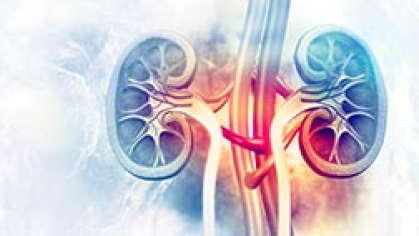Pioneering Kidney Disease Research at Rutgers University–Camden

Understanding Polycystic Kidney Disease Research at Rutgers
Rutgers University–Camden stands at the forefront of innovative research into polycystic kidney disease (PKD), a debilitating genetic disorder affecting millions worldwide. Led by dedicated researchers like Inna Nikonorova and Maureen Barr, the Department of Genetics at Rutgers–Camden is making significant strides in understanding the disease’s progression and developing potential therapies. This article delves into the groundbreaking research conducted at Rutgers–Camden, exploring its implications for PKD patients and the future of kidney disease treatment. This research is particularly exciting for those interested in pursuing advanced studies in genetics and molecular biology.
Shining a Light on Extracellular Vesicles: A Novel Tracking Tool
A key focus of Rutgers–Camden’s research is the role of extracellular vesicles (EVs) in PKD. These microscopic cellular messengers, once dismissed as mere waste products, are now recognized as crucial players in various diseases, including PKD. Researchers at Rutgers have developed an innovative method to track EVs and their cargo, providing unprecedented insights into how they contribute to disease development. By tagging polycystin-2, a protein implicated in PKD, with a green fluorescent protein, scientists can observe its movement and interactions within the body of a model organism, the C. elegans worm. This innovative tracking method allows scientists to map the journey of polycystins and associated proteins, illuminating their role in PKD progression.
Unraveling the Mystery of Cargo Selection and Packaging
Prior to this research, the process of cargo selection and packaging into EVs remained largely unknown. The proximity labeling technique developed at Rutgers–Camden enables researchers to identify not only the proteins within EVs but also to analyze their interactions with polycystins. This detailed understanding of EV cargo and its behavior could be instrumental in developing targeted therapies for PKD. Imagine a future where treatments could directly interfere with the harmful cargo carried by EVs, preventing disease progression or even reversing its effects. This is the promise that Rutgers–Camden’s research holds.
Implications for PKD Therapies and Future Research
The ability to track and analyze EV cargo opens exciting new avenues for PKD research. By pinpointing the specific proteins and pathways involved in disease development, scientists can identify potential drug targets and develop more effective therapies. The groundbreaking work at Rutgers–Camden lays the foundation for future research into:
- Targeted drug delivery: Could EVs be engineered to deliver drugs directly to diseased kidneys, minimizing side effects and maximizing therapeutic impact?
- Early disease detection: Could EV cargo serve as biomarkers for early PKD diagnosis, allowing for timely intervention and improved patient outcomes?
- Personalized medicine: Could understanding individual variations in EV cargo lead to personalized PKD treatments tailored to each patient’s unique needs?
The research conducted at Rutgers University–Camden offers a beacon of hope for individuals affected by PKD. By shedding light on the intricate mechanisms of this complex disease, scientists are paving the way for innovative therapies and a brighter future for PKD patients. Individuals driven by a passion for scientific discovery and a desire to make a tangible impact on patients’ lives are encouraged to explore the research opportunities and academic programs available at Rutgers–Camden.
Take the Next Step in Your Research Journey
Are you inspired by the groundbreaking research at Rutgers University–Camden? Consider joining the ranks of innovative scientists dedicated to advancing kidney disease research. Explore the graduate programs in genetics and molecular biology offered by Rutgers–Camden and Shorelight Pathways, and discover how you can contribute to the fight against PKD.
Learn more about the cutting-edge research being conducted at the Department of Genetics at Rutgers University–Camden. Discover how you can be a part of a leading research institution by exploring academic programs in related fields. Explore the graduate programs offered at Rutgers University-Camden in partnership with Shorelight Pathways. Contact Rutgers University–Camden today to learn more about research opportunities in kidney disease.

